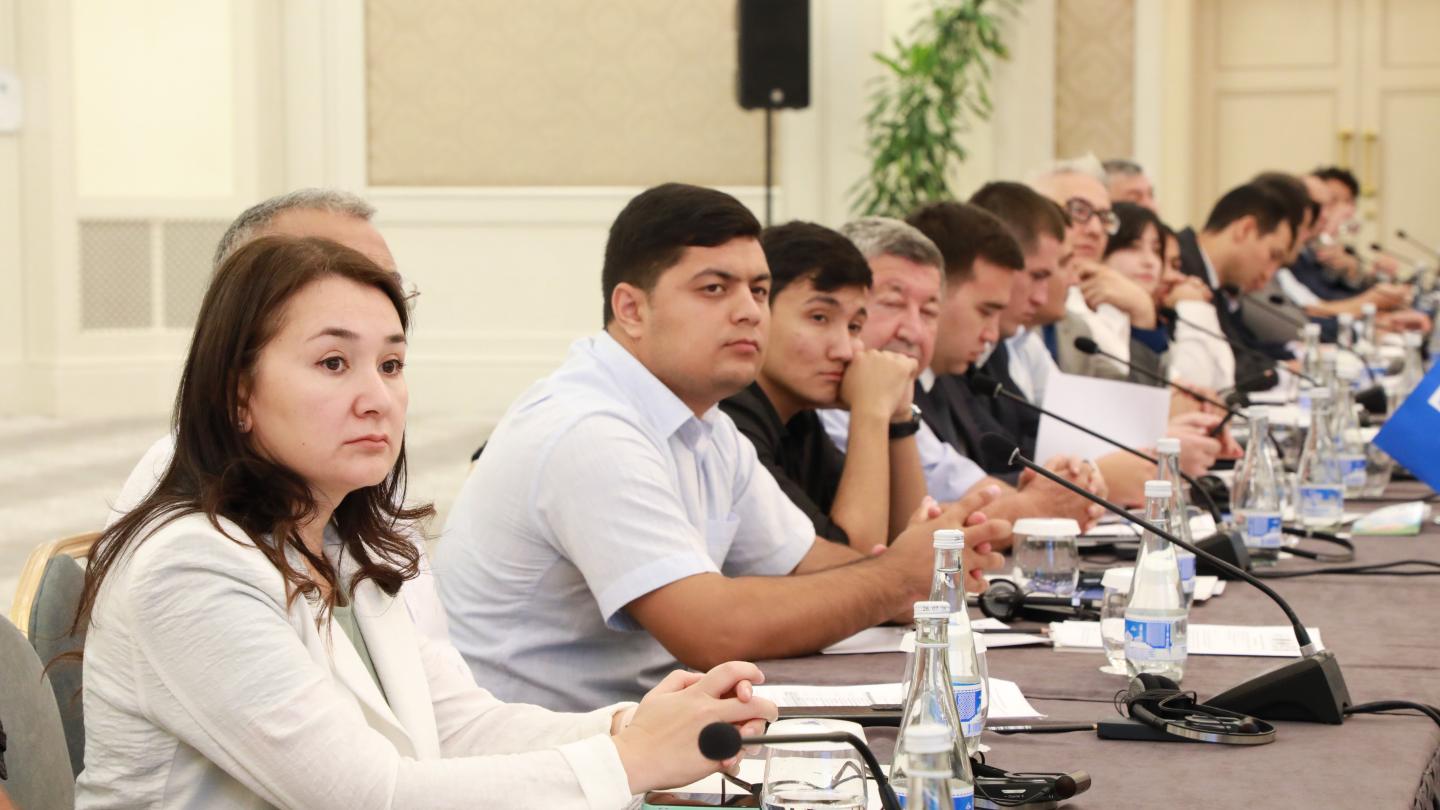Results of the UNDP and GEF project on construction of energy-efficient rural housing in Uzbekistan have been summed up
September 7, 2024

Tashkent hosted the final event of the project “Assistance in the Development of Construction of Energy-Efficient Rural Housing in Uzbekistan”, where the results of its successful implementation by the UNDP Uzbekistan and the Ministry of Construction and Housing and Communal Services of the Republic of Uzbekistan with the financial support of the Global Environment Facility (GEF) have been summed up. Representatives of ministries and agencies, international organizations, commercial banks - partners of the project, as well as specialists of the Extrabudgetary Intersectoral Energy Savings Fund under the Ministry of Energy of the Republic of Uzbekistan attended the event.

Today, almost half of all energy produced in the country is consumed in residential buildings. At the same time, about 40% of total greenhouse gas emissions in Central Asian and Eastern European countries come from the housing sector. Currently, over 70% of housing built in Uzbekistan is in rural areas. Accordingly, the pressure on natural resources in the housing sector is particularly evident in rural areas, where almost half of the country's population lives.
Thus, the UNDP/GEF project aims to shift Uzbekistan's rapidly developing construction sector in the regions to a more sustainable development path that reduces greenhouse gas emissions through the design, piloting and development of a green lending mechanism for energy-efficient building materials and technologies and increasing demand for energy-efficient and low-carbon housing among the population of Uzbekistan.
Summing up the results of the project, experts noted the main results of its implementation. In particular, energy efficiency requirements have been strengthened in a number of building standards for residential buildings, and two new regulatory documents have been developed. This, in turn, has become the basis for future projects to improve the resource efficiency and reduce their adverse environmental impact. It was emphasized that the project will save about 33.2 million megajoules (MJ) of energy over the 20-year service life of the installed equipment and materials, which is significantly higher than the originally planned goals. As a result of all project activities, greenhouse gas emissions are expected to decrease by 17.5 million tons of CO2e over the next 20 years, which indicates a significant contribution to combating climate change.

The project used a green mortgage mechanism to subsidize the installation of renewable energy equipment in 1,328 households, which was an important step towards further sustainable funding.
At the same time, a large-scale public and stakeholder information campaign was conducted to increase interest in energy-efficient and low-carbon housing.
Importantly, the project paid great attention to gender equality to ensure that women and men had equal access to the opportunities created by the project.
The final event also featured presentations by other international organizations that shared their experience in supporting energy efficiency and green finance in Uzbekistan, including the Japan International Cooperation Agency, the German Society for International Cooperation (GIZ), the European Bank for Reconstruction and Development, the World Bank and the Asian Development Bank.
In her remarks at the event, Akiko Fujii, UNDP Resident Representative in Uzbekistan, emphasized the significance of the project’s alignment with national and global sustainability goals.
“UNDP is delighted to join our partners to celebrate the project's achievements today. Its contribution to decarbonizing the rapidly growing rural housing sector is a significant step towards achieving UN sustainable development goals,” she said.
At the end of the event, it was noted that the UNDP/GEF project has laid a solid foundation for further development of energy-efficient and sustainable construction in rural areas of Uzbekistan. The project specialists expressed confidence that the achieved results will contribute to the improvement of the quality of life of the population and creating a healthy environment.

 Locations
Locations






